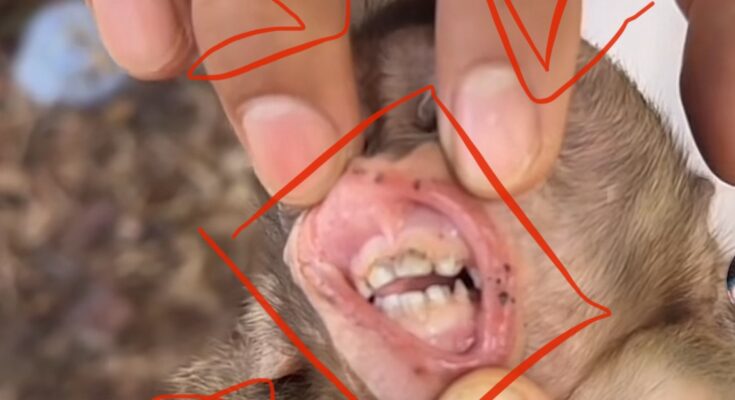Tragic Curiosity: Baby Monkey Dies After Consuming Mysterious ‘Kangaroo Egg’
In an unexpected and tragic incident at a wildlife sanctuary in Southeast Asia, a baby monkey passed away after ingesting what staff described as a “kangaroo egg.” While the phrase may sound biologically implausible—since kangaroos are marsupials and do not lay eggs—the term was used to describe an unusual object found in the shared enclosure.
The incident has sparked confusion, curiosity, and a wave of online speculation. What exactly happened? And how did a supposed “kangaroo egg” enter the picture?
The Incident
According to sanctuary staff, the juvenile macaque was found unresponsive early Monday morning. Surveillance footage revealed that the monkey had discovered a small, round, pale object in a corner of the habitat, which it proceeded to chew and ingest.
Caretakers were baffled until they found a similar object nearby—later identified as a reptile egg, most likely laid by an invasive monitor lizard species that had recently been spotted near the compound. However, a tourist earlier in the week jokingly referred to the object as a “kangaroo egg” while taking photos, and the nickname stuck.
Despite its comedic origins, the term created widespread misunderstanding when news of the death broke online. Some took the phrase literally, prompting debates about kangaroo biology, and others saw it as a hoax. But the truth was more sobering.
A Deadly Curiosity
Monkeys are naturally inquisitive creatures, often exploring their environment with their hands and mouths. Unfortunately, this can sometimes lead to fatal outcomes, especially when human activity introduces foreign species or objects into their habitats.
Post-mortem analysis revealed that the egg the monkey consumed was contaminated with harmful bacteria—likely due to being partially rotten or exposed to contaminated soil. The baby monkey suffered severe internal infection and passed away within hours.
Veterinarians believe the young primate’s immune system was not strong enough to combat the bacterial load. “It’s a sad case of curiosity turning deadly,” said Dr. Linh Tran, the sanctuary’s chief veterinarian. “This highlights the importance of maintaining strict ecological boundaries in mixed-species environments.”
Misinformation and Misunderstanding
The phrase “kangaroo egg” spread rapidly on social media, with users posting memes, jokes, and speculative theories. Wildlife experts took to various platforms to clarify that kangaroos are marsupials and give birth to live young, not eggs—a trait shared by all mammals except monotremes like the platypus and echidna.
While the misinformation might seem harmless, it also underscores the need for better wildlife education, especially in regions that host ecotourism.
Lessons Learned
This incident, tragic as it is, serves as a reminder of the delicate balance between wildlife, human presence, and misinformation. Sanctuaries and zoos are now urged to conduct more frequent inspections to ensure invasive species or foreign objects don’t enter animal enclosures.
In memory of the baby monkey, the sanctuary has announced plans to build a small educational exhibit titled “Curiosity and Caution: Learning from Wildlife”, aiming to teach visitors about the risks animals face and how human behavior can unintentionally put them in danger.



